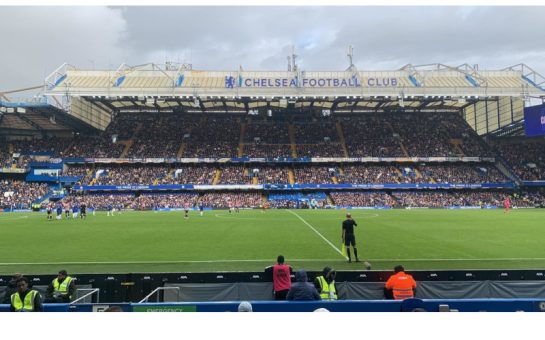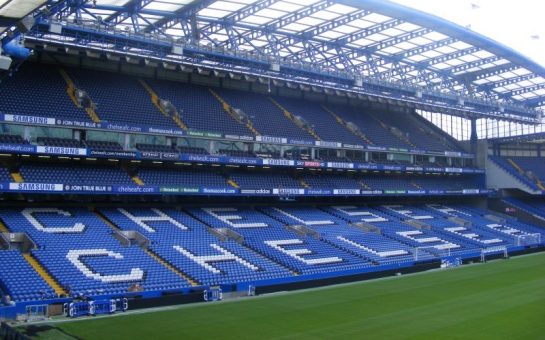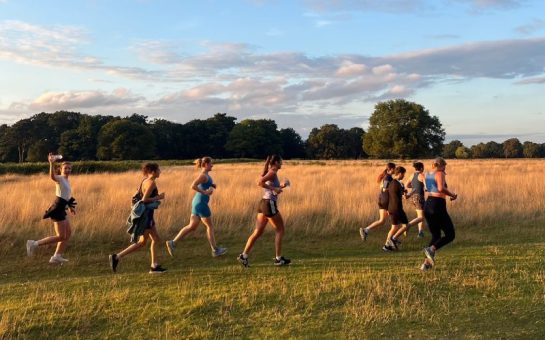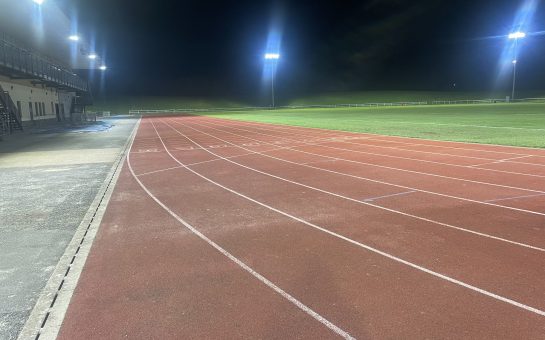By Emily Craigie
August 21 2020, 17.48
Follow @SW_Londoner
There are few forms of exercise as immersive as swimming.
For swimmers across the country even the cold tile floors and the heavy smell of chlorine have been missed during the coronavirus lockdown.
For Frances Penwarden, a member of Croydon Amphibians Masters, it wasn’t until she got in the pool again that she realised the impact of not swimming upon her life.
Desperate to get back in the water she travelled to Godstone to swim in the lake despite disliking open water swimming.
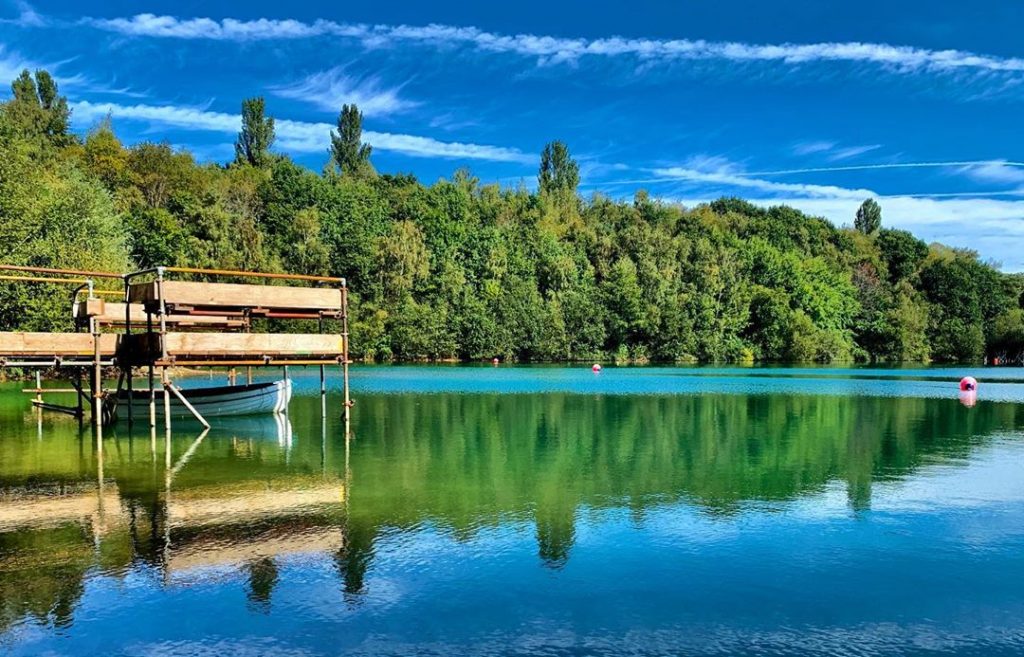
Image credit: Divers Cove
“I hadn’t been aware of lowered mood until I swam for the first time a month ago when I felt energised and elated the whole day afterwards. I now realise I had slowly become more introverted and was becoming less motivated to go anywhere or see friends,” she said.
Swim England chief executive Jane Nickerson said swimming significantly reduces the symptoms of anxiety or depression for 1.4 million British adults.
For Frances, outdoor swimming served a purpose, but it couldn’t beat the rituals of a pool swim.
“It felt so good to stretch out and swim with my usual stroke – enjoying the feel of passing through the water – and tumbling to turn.”
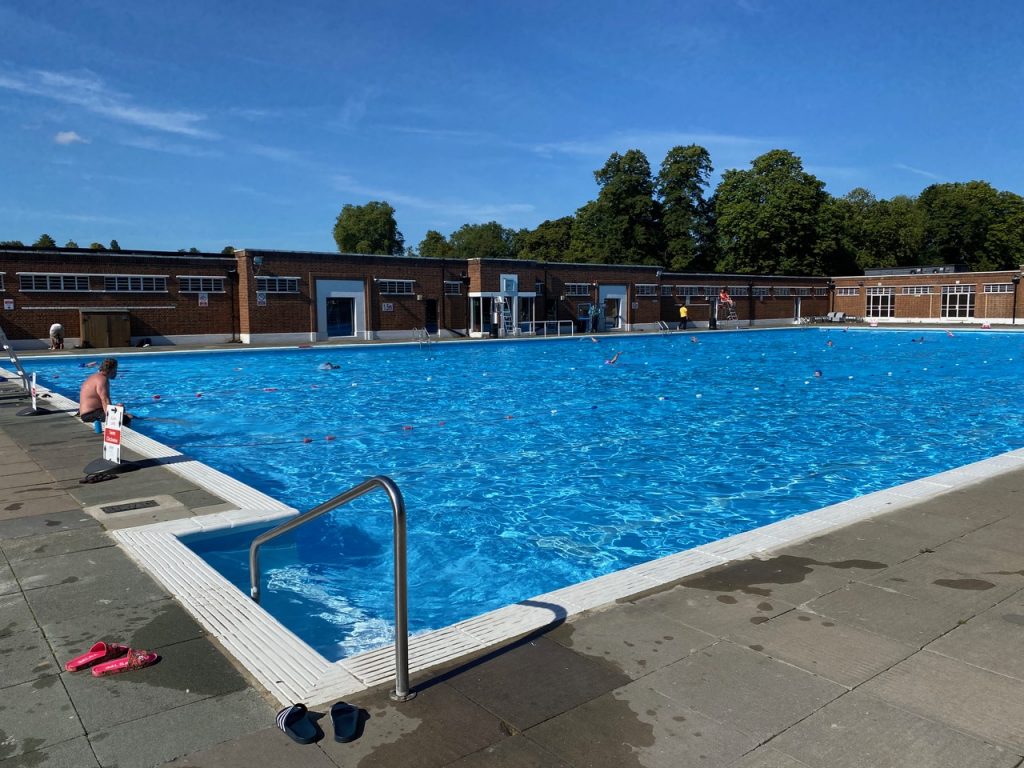
Image credit: Tim Sutton
Brockwell Swimmers club chair Tim Sutton has also missed tumble turns while he has been open water swimming.
Though that’s not to say he hasn’t enjoyed swimming in lakes.
“I’ve been doing lots of open water swimming which has been a positive thing and given me a chance to get off and explore places”.
However, like Frances, he was thrilled to be back in the pool.
“It was brilliant, there were just club members relieved to get back into a swimming pool and thrash out some lengths. It was absolutely superb,” he said.
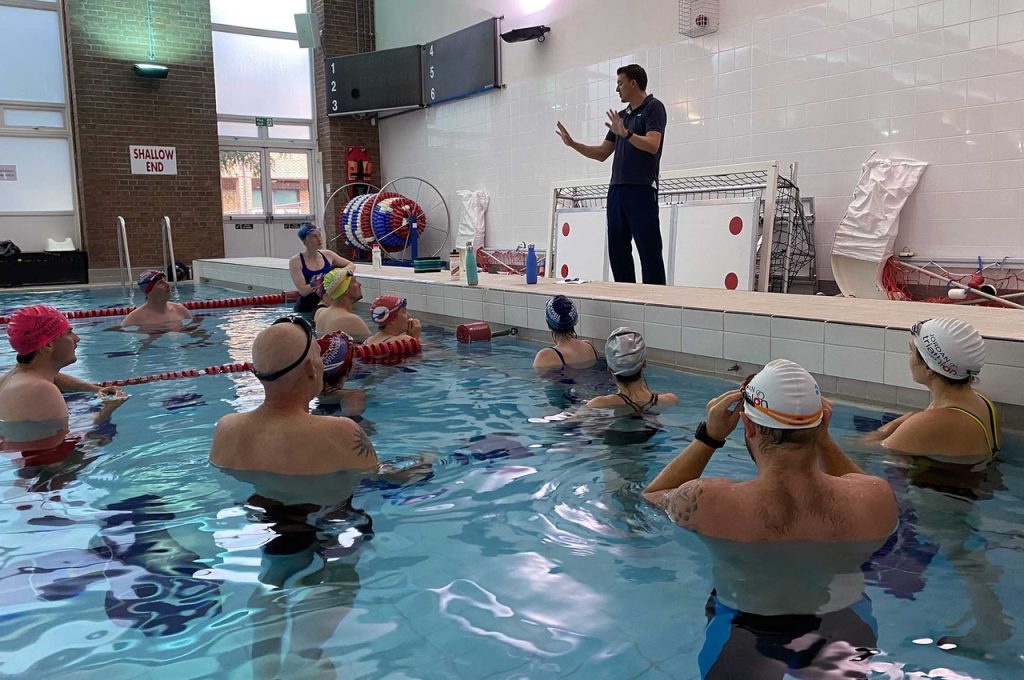
Image credit: Tim Sutton
But not all swimming clubs are as lucky with research suggesting over 30% of public pools could remain closed until 2021.
In response, Community Leisure UK has launched a #SaveLeisure campaign.
Chief executive Mark Tweedie said: “We are asking for government specific financial support to tide the sector over for the rest of this year until the end of March next year.”
He added that while pools are able to follow social distancing rules, it is not financially viable for them to reopen.
Unlike gyms, swimming pools cost money to open due to expensive running costs.
With only 30-50% of their usual capacity many pools are taking advantage of the furlough scheme.
However, once that ends, swimming pools could face a bleak future.
Ms Nickerson said: “We fear up to ten per cent of pools may never reopen. That will leave millions of people without a swimming pool.
Disappointing week with news of pool closures. Team working hard to find water for displaced swimmers, divers and players. Continuing to lobby for funding to save this sector. Not giving up.#saveleisure
— Jane Nickerson (@JMNSwimmer) August 15, 2020
“Before the pandemic hit, 1.6 million children were in swimming lessons following the Swim England Learn to Swim programme. Every pool unable to open will leave a generation of children behind when it comes to learning this vital life skill.”
Pool closures could also disproportionately impact women, BAME communities and those from a lower socio-economic background.
More women than men use leisure centres and 26% of members of public leisure facilities are from a BAME background, compared to 14% of the population.
Furthermore, Swim England has warned that if decisions to keep leisure centres open are based on profit, provision could decline in less affluent areas.
For William Wyatt, who has not been able to swim since the start of lockdown, it’s impacting his health.
“It has made my mobility worse because I have cerebral palsy so it’s important for me to keep moving and the less I move the more ‘disabled’ I get because it’s all to do with muscle movement and muscle power,” he said.
William is a member of the Halliwick Penguins Swimming Club in Enfield and chair of the Halliwick Association of Swimming Therapy which teaches water safety and swimming for disabled people.
Swimmers are taught on a one-to-one ratio with a holistic approach.
This includes teaching and learning alongside activities, games, music and disability equality issues.
We need pools to open. Our swimmers are disabled and swimming is often the only sport they can participate and achieve in. Not swimming is making a lot of our members’ disabilities worse ☹️ https://t.co/DXlROSwxNN
— Halliwick Penguins Swimming Club (@Halliwick) August 4, 2020
For some members not swimming has proven challenging.
“A lot of them are very upset and it’s making their mobility and their disabilities worse. It’s had an impact on their mental health. Joining a club is not just good physically but it’s also an emotional outlet,” he said.
For many people swimming is more than just a sport, it’s their social life, their escape and their therapy.
Yet, unless something drastically changes, many swimmers like William could face a long wait before they’ll be in the water again.
You can find out more information about Croydon Amphibians here, Brockwell Swimmers here and Halliwick Penguins SC here.
